Here's Everything You Need To Know About Flying While Pregnant This Year, According To Experts
Travel is a big part of my life. Not only do I love it, but as a travel writer, it's part of my job. So when I found out I was pregnant earlier this year, I did a ton of research on flying while pregnant.
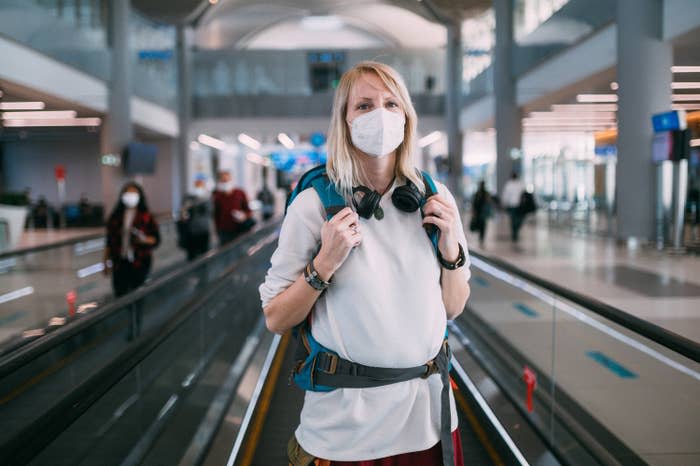
I found the American College of Obstetricians and Gynecologists (ACOG) to be a great resource, and of course, the CDC.
I took my first international flight in the second trimester and have a second planned during the third trimester.
Comedy Central / Via Giphy / giphy.com
I flew to Ecuador and the Galapagos during my second trimester (weeks 21 and 23) and have plans to fly internationally again during my third trimester (returning during week 32). I feel like I'm pushing the limits with that second trip, so I chatted with Mary Jane Minkin, MD, a gynecologist with the Yale School of Medicine.
Here's what I've learned and what the experts have to say:
1.Before you do anything, talk to your doctor.
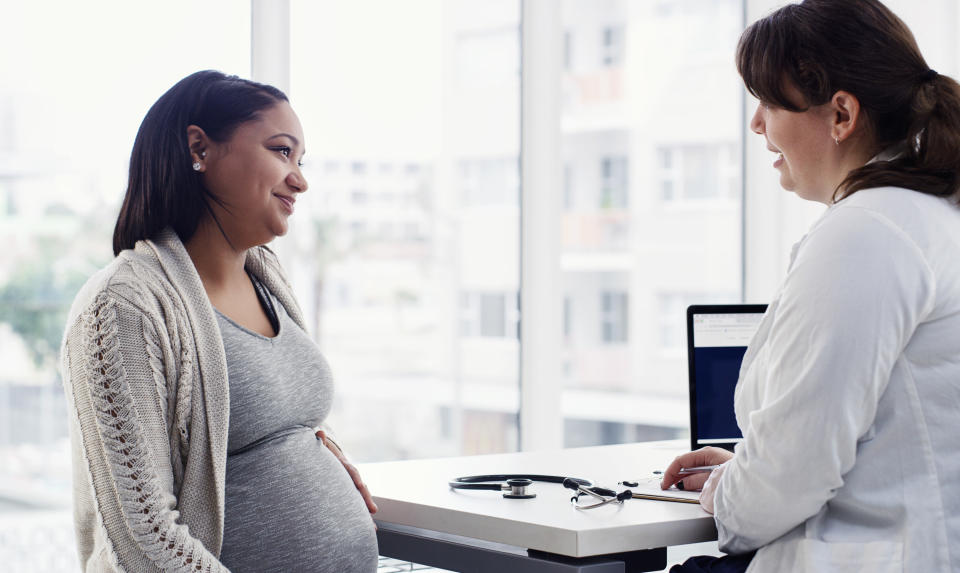
Minkin's first note of advice is that it's "always a good idea to speak with your provider to get a sense of her/his recommendations." They know you and your pregnancy and will be able to provide you with personalized tips and suggestions.
In general, ACOG recommends that pregnant women have a prenatal check-up before traveling, make sure they're up-to-date on vaccinations, and know what symptoms to watch out for. ACOG doesn't recommend travel for women with some complications, including pre-eclampsia, pre-labor rupture of membranes (PROM), and preterm labor.
2.Your OB-GYN's recommendation might depend on where you're going and what the situation will be like at your destination.
20th Century Fox / Via Giphy / giphy.com
Minkin says that her advice to expectant mothers depends on where they're going and what the situation will be like at their destination. She asks, "[Are you going] somewhere where you could get excellent medical care, [or] is it a far remote area without medical care? For example, when I was about 30 weeks gestation, I went to a gynecology course in Sarasota, Florida, with about 100 gynecologists in attendance; and there was a major hospital 4 miles away — I felt pretty safe."
In short, visiting your mother in St. Louis is probably safer than hopping a flight to a remote island in Indonesia.
3.There are different opinions on when pregnant women should stop flying.
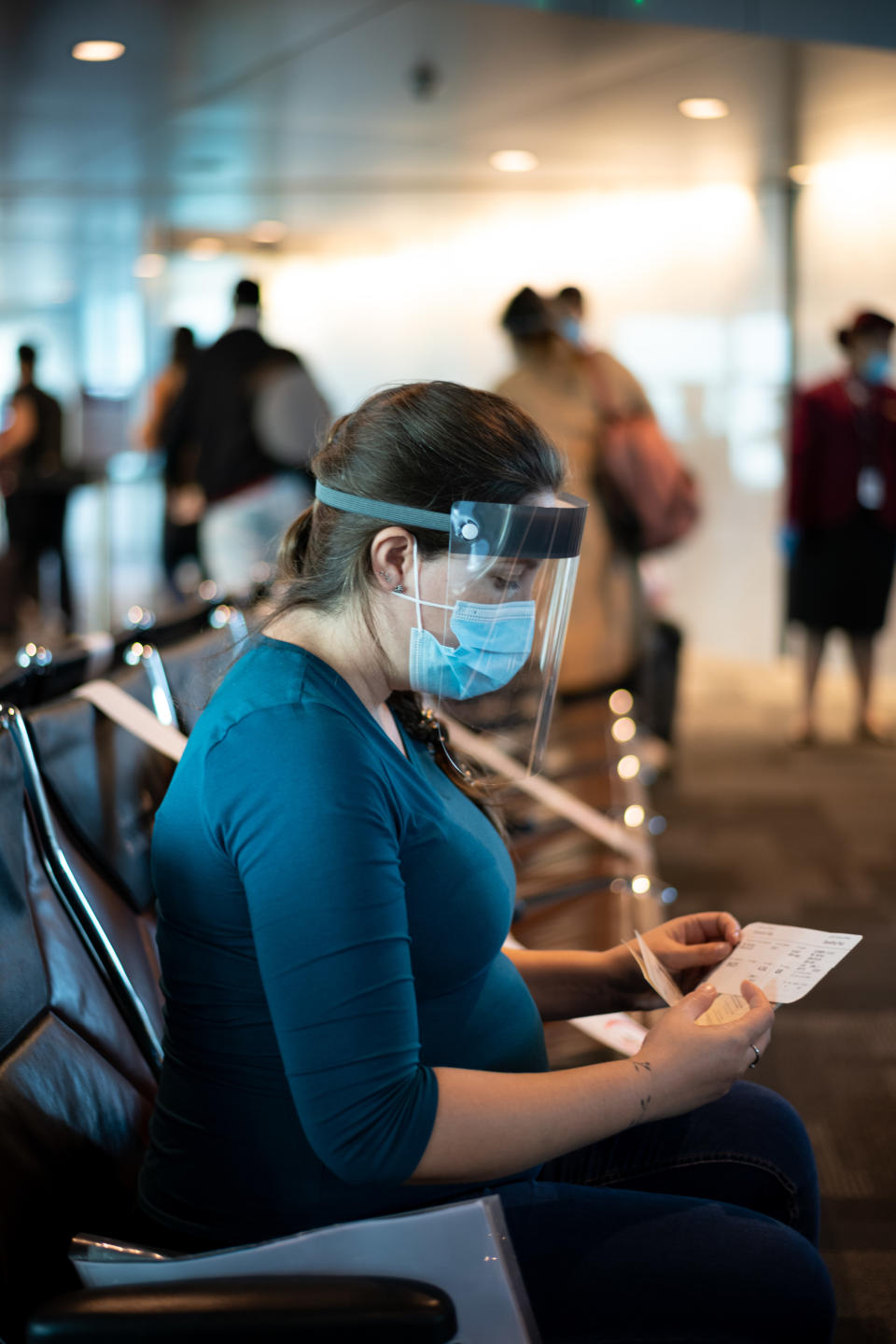
Minkin notes that "in general, most OBs don't want you traveling too far afield after about 30 weeks (7-plus months) gestation," but the cutoff time changes depending on who you talk to and what airline you're flying.
You can fly free and easy on both American and United Airlines until your 36th week of pregnancy (or four weeks until your due date), while Air France, which I'm flying on my next trip, recommends that you "avoid travel starting from week 37 of your pregnancy."
4.If you push it too far, you might need documentation from your OB-GYN that gives you permission to fly.
HBO / Via Giphy / giphy.com
If you need to fly within that 36- to 40-week mark (on American and United, at least), you'll need to provide a note from your doctor stating that you're fit to travel.
5.You might want to have access to your pregnancy care history in case something happens.
Netflix / Via Giphy / giphy.com
Every pregnancy is different, and Minkin states that "some very cautious women do bring a summary of their obstetrical care with them, in case they get into some health issues when they are away from home."
This might be a good move if your pregnancy has been complicated (or you're traveling close to your due date). It might also be worth your time to research healthcare and hospitals at your destination.
6.In general, the more pregnant you are, the more uncomfortable flying will be.
HBO / Via Giphy / giphy.com
ACOG says, "The best time to travel is mid-pregnancy (14 to 28 weeks). During these weeks, your energy has returned, morning sickness is improved or gone, and you are still able to get around easily. After 28 weeks, it may be harder to move around or sit for a long time." But Minkin notes that the reality is that "you tend to be more uncomfortable the further you are into pregnancy."
It all depends on you. If you're having a breezy, morning-sickness-free first trimester, go for it. But chances are, when you're deep into your third trimester, things might be different.
7.If you need or want medication to fly, talk to your provider first.
ABC / Via Giphy / giphy.com
As you've probably figured out by now, advice on what you can and can't do during pregnancy will vary based on who you talk to. If you typically take Xanax, NyQuil, or any other drug before a flight, Minkin says you should check with your individual care provider. "Some will be OK with Xanax; some will not — so I would check with the individual provider," she said.
In short, your OB-GYN knows you and your pregnancy best and will be able to give customized advice.
8.Blood clots are a thing. Get up and move regularly, and consider buying compression socks.

You've probably heard people talk about the dangers of getting blood clots while flying, and if you're like me, you might've blown it off. Well, there's no denying it's a thing — according to ACOG, "Any type of travel lasting four hours or more — whether by car, train, bus, or plane — doubles the risk of DVT [deep vein thrombosis — the result of a blood clot]."
And, as you might've guessed, being pregnant is an extra risk factor. "There is an increased risk of blood clots all the way through pregnancy; so you want to get up and walk around regularly, ideally every hour or two. And keep flexing your heels," said Minkin, who said drinking lots of water can also help.
I've been researching compression socks, which are supposed to improve blood flow, lessen swelling, and lower your chances of getting DVT. These Physix socks have great reviews on Amazon.
9.Now is not the time to try to squeeze into your pre-pregnancy jeans. Loose, flowy clothing is the way to go.
FXX / Via Giphy / giphy.com
Not only does loose-fitting clothing help with the blood clot issue (according to ACOG), but you'll feel a million times more comfortable in a pair of loose, stretchy pants.
On my first flight as a pregnant person, I wore wide-leg pants with an elastic waistband, a tank top, and a hoodie. I didn't look like a total slob, and most importantly, I didn't feel like a stuffed sausage during the flight.
10.You might want to consider booking two shorter flights instead of one, long-haul flight.
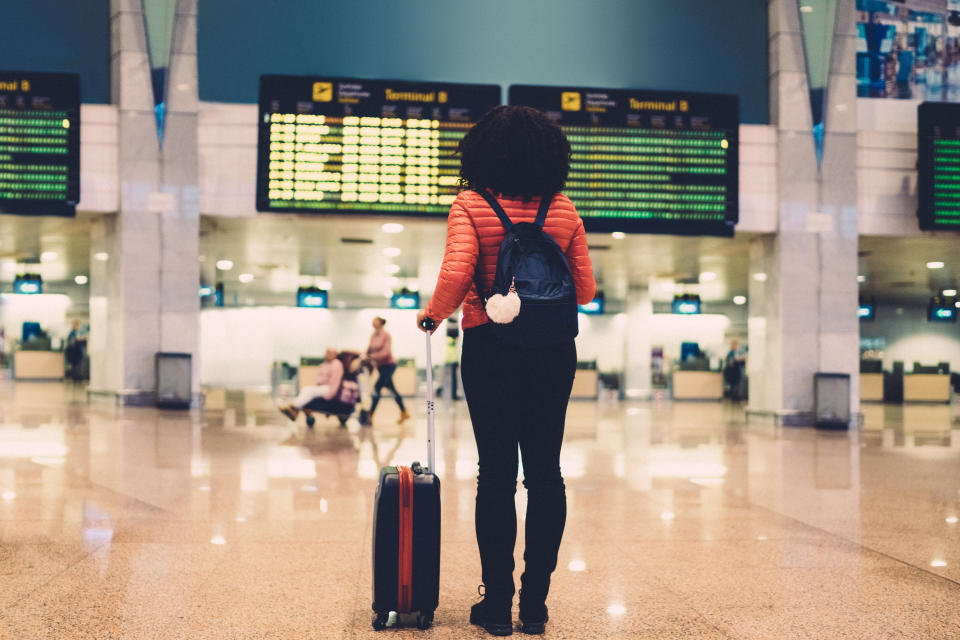
I personally prefer one long-haul flight to two short flights, but Minkin notes, "Unfortunately most women won't feel very comfortable on a prolonged flight being in one position — so you might want to consider two shorter segments."
I found this advice super helpful and took it into account when booking my upcoming trip. My itinerary isn't as direct, but I think having a couple hours to stretch my legs, fill up my water bottle, and use a bathroom might make the trip a little more doable.
11.The aisle seat is your friend. The window seat or (God forbid) the middle is your enemy.
Comedy Central / Via Giphy / giphy.com
The middle seat isn't ever comfortable, but it's worse (much worse) while pregnant. Being squished between two people who don't know (and likely don't care) that you're growing a human can be tough — especially if they're manspreaders or arm-rest hogs.
Minkin says, "I would also suggest an aisle seat — to get up and move around, and to be able to go to the bathroom frequently."
12.Soooo, you might have to pay to choose your seat.
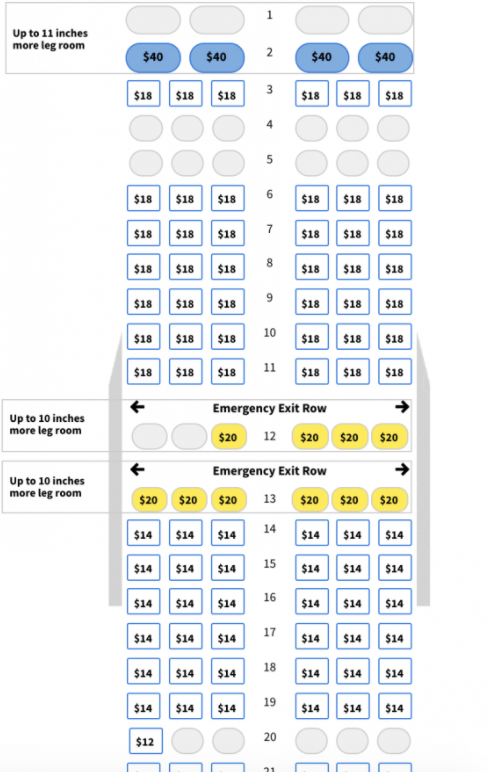
I hate that airlines charge you to pick your seat these days, so I have a tendency to skip that step (and skip paying the extra money) and then ask the gate attendant if I can move. This has worked for me sometimes, but there's no guarantee.
On my first flight as a pregnant person, I took a chance and was assigned the dreaded middle seat — surrounded by two strangers. It sucked. My advice: If you're pregnant, just pay the extra money.
13.Because of COVID-19, some things have changed. For starters, you should probably get vaccinated before you travel.
NBC / Via Giphy / giphy.com
COVID-19 has changed things for everyone, but according to the CDC, "Pregnant people and recently pregnant people are at an increased risk for severe illness from COVID-19 when compared to non-pregnant people."
The decision to get vaccinated is a personal choice, especially while pregnant, but there's no denying the increased risk of illness from COVID-19. Minkin said, "I would definitely suggest COVID vaccinations, as I do regularly, traveling or not."
14.You'll have to wear a mask while in the airport and on the flight.
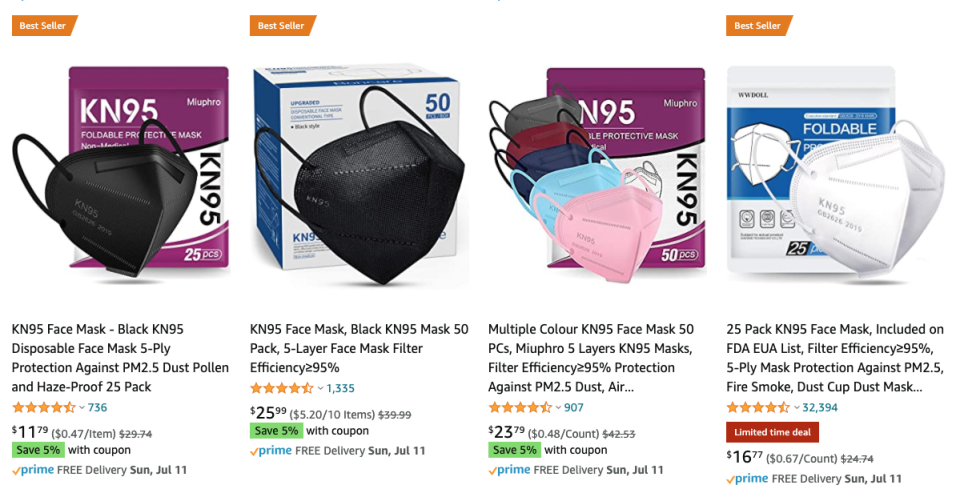
Personally, I'm a big fan of the KN95 mask. I wore one during all three flights to the Galapagos and felt super protected.
15.And it may be helpful to include a couple of COVID-inspired extras in your purse or backpack.
FXX / Via Giphy / giphy.com
Because I travel so much, I don't board a flight without my little in-flight travel kit. Inside I have earplugs, an eye mask, a neck pillow, and lavender essential oil (it helps me sleep). Because of COVID-19, I added a pack of antibacterial wipes and hand sanitizer into the mix.
16.You might want to pack your own snacks for the flight — and to combat hanger in case of a delay.
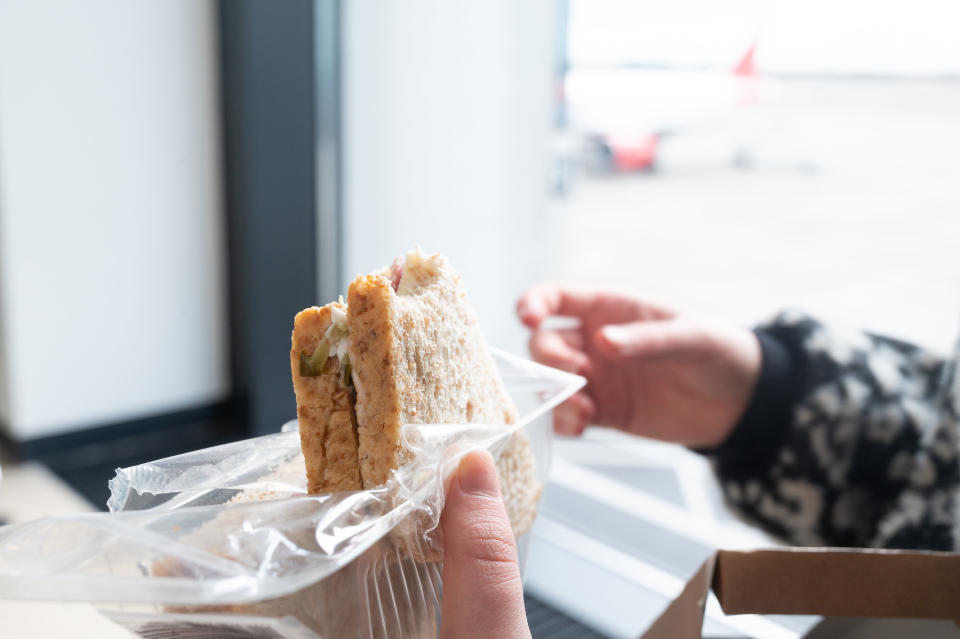
I'm sure airplane food is fine, but according to the FDA, "Changes during pregnancy alter the mother's immune system, making pregnant women more susceptible to foodborne illness."
So I've been packing along my own food to be safe. And, as any traveler knows, delays and flight cancelations happen. To avoid evolving into that hangry pregnant lady storming the customer service desk, Minkin says you should "have some snacks available in your purse — if you experience delays, you want to have some food available."
I usually pack along a PB&J, an apple, peanut butter–filled pretzels, and a bar or two.
17.Bring a water bottle (or two) from home, and keep them full throughout your trip...
Showtime / Via Giphy / giphy.com
Now is not the time to rely on those tiny cups of water the flight attendants hand out. Bring your reusable water bottle to the airport empty, and fill it up once you get through security. I swear by my Hydro Flask — which keeps water cool for hours.
18.And know that your increased need to pee is real. Don't think you can avoid airplane bathrooms.
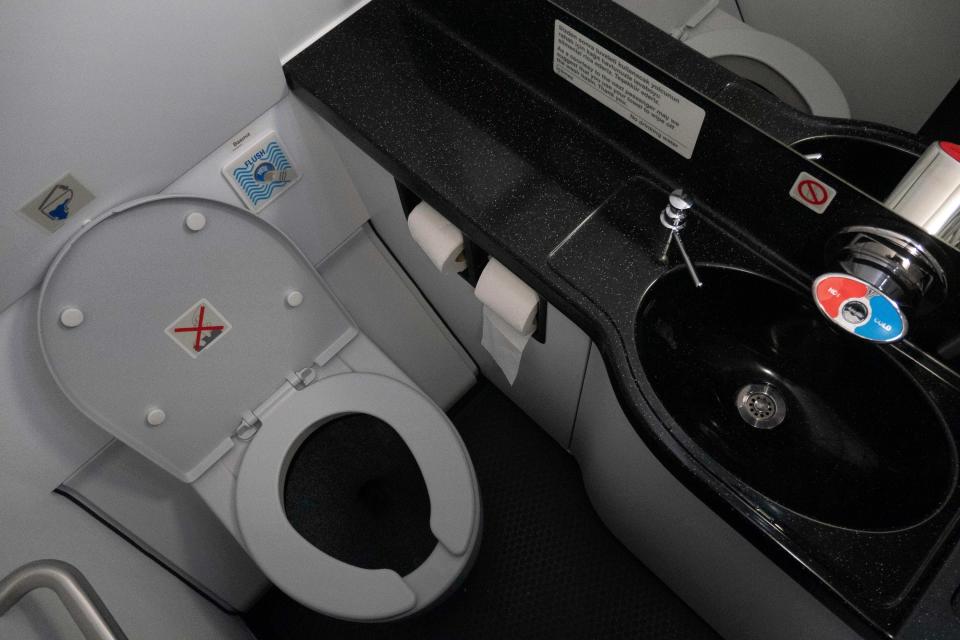
I typically avoid airplane bathrooms at all costs, but that's not an option when you have a human pushing on your bladder. Another reason why the aisle seat is clutch!
19.If you're like me, being pregnant might be the first (and potentially only) time you get VIP treatment at the airport.
Nickelodeon / Via Giphy / giphy.com
There are some pregnancy perks. On our way home, the customs line was crazy long, but I spied a special queue for certain people, including "EXPECTANT MOTHERS." It saved me at least 30 minutes.

